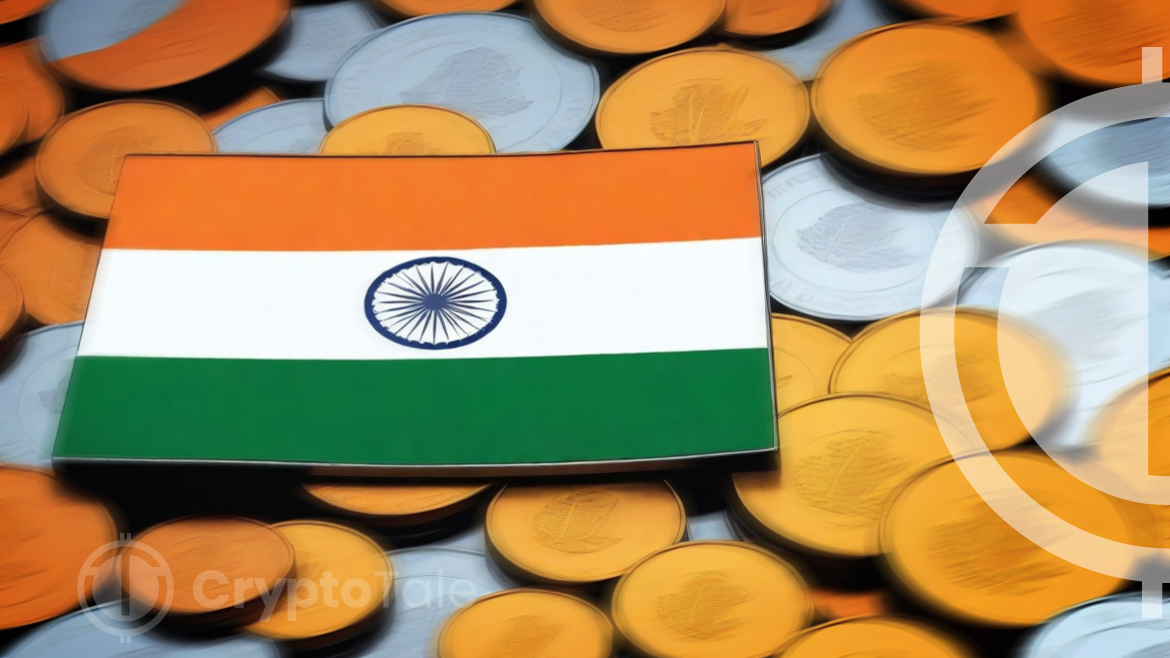
Crypto trading in India is experiencing significant growth and adoption. In this landscape, crypto regulations and regulatory approval are mandatory to create a secure environment for crypto trading. In this article, we will discuss crypto exchanges that are officially approved in India.
Officially Approved Crypto Exchanges
In December 2023, during a session at Lok Sabha, the Lower House of the parliament, India’s Finance Minister Pankaj Chaudhary answered a query raised by a parliament member regarding the status of entities registered under the Anti-Money Laundering (AML) and Counter Financing of Terrorism (CFT) guidelines. He provided a list of 28 crypto service providers, also known as Virtual Digital Assets Service Providers (VDA SPs), who had undergone registration with the country’s Financial Intelligence Unit (FUI).
Top Crypto Exchange Platforms
1. CoinDCX
CoinDCX is a well-known crypto exchange platform in India. Established in 2018, the platform has a simple and intuitive user interface. It has a user base of over $10 million and strong security protocols to protect users’ data. CoinDCX facilitates fiat-to-crypto conversions, margin and futures trading, spot trading, and more. It offers an extensive range of cryptocurrencies, including Bitcoin (BTC), Chainlink (LINK), Cardano (ADA), Ripple (XRP), and more. The platform ensures compliance with all the PMLA (Prevention of Money Laundering Act) regulations.
For spot trading, the Maker and Taker fee can reach a maximum of 0.5%, while futures trading incurs a Maker fee of 0.025% and a Taker fee of 0.075%. Moreover, the platform does not charge fees for fiat deposits and withdrawals, as well as crypto deposits.
2. WazirX
WazirX is a widely used cryptocurrency exchange platform with millions of users in India. It supports more than 200 cryptocurrencies with a diverse range of trading pairs. Launched in 2018, it features a user-friendly interface and provides a P2P platform where buyers and sellers can conduct direct transactions with each other, with WazirX acting as the escrow. WazirX offers a referral program where users can earn commissions for each new member they refer to the platform. As a crypto exchange registered with the Financial Intelligence Unit (FIU), it follows all regulatory guidelines.
The platform has a native utility token called WRX, and the more tokens you hold, the lower the trading fees. For spot futures, WazirX charges 0.4% as transaction fees, while it charges zero fees for P2P trading, crypto deposits, and withdrawals.
3. ZebPay
ZebPay was launched in 2014 and is one of the earliest cryptocurrency exchange platforms. It has a user base of over 3 million and supports more than 150 cryptocurrencies. The platform provides a user-friendly environment, robust security protocols, and a variety of trading pairs. ZebPay offers features like crypto lending with a fixed interest rate of 4%, a lightning network for faster transactions, lower fees, and more. As part of the crypto exchanges registered under FUI, users are required to go through the KYC verification process, along with other measures, as per the regulatory guidelines.
For new users, a Maker fee is 0.45%, and a Taker fee is 0.3%. The transaction fees will be lowered for VIP users according to their VIP level. The transaction costs are free for fiat deposits and withdrawals, and crypto deposits. However, for crypto withdrawals, the fee can vary based on the asset.
4. CoinSwitch
CoinSwitch is one of the best crypto exchange platforms in India. Launched in 2017, it differs from other exchanges in that it pools liquidity from various domestic and international exchanges to offer favorable rates for investors. It has gathered over 10 million users, and there is no need to worry about security issues because it is non-custodial, and users have full control of the keys to their wallets. The platform has over 150 cryptocurrencies and follows all the PMLA regulations, including KYC verification and AML (Anti-Money Laundering) policy.
Compared with other crypto exchanges, CoinSwitch offers lower transaction fees. The platform facilitates free transactions for fiat deposits and withdrawals, alongside crypto deposits. It charges 0.1% for trading, and discounts are available based on the volume traded.
5. Bitbns
Bitbns is a popular crypto exchange platform founded in 2017, boasting more than 4 million users and a user-friendly interface. The platform supports a wide range of cryptocurrencies and offers margin and futures trading, options trading, and other services. Furthermore, by staking BNS, the exchange’s native token, users can earn passive income. As a crypto exchange listed in the FIU, it complies with all the PMLA regulations.
The crypto exchange platform offers free transactions for fiat and crypto deposits. While fiat withdrawals usually do not incur transaction fees, instant withdrawal of funds may require a transaction fee.
Taxation on Crypto Trading
The discussion surrounding official regulations for cryptocurrencies commenced in 2021 and was introduced in the Lok Sabha for initial deliberations. However, no decision was made at that time. It wasn’t until the Union Budget of 2022 that the government officially categorized digital assets, including cryptocurrencies, as “Virtual Digital Assets.” Subsequently, trading these assets became subject to a tax rate of 30%, plus a 4% cess, under Section 115BBH, effective from April 1, 2022. Additionally, a 1% Tax Deducted at Source (TDS) under Section 194S was incorporated, applicable from July 1, 2022.
Individuals will be taxed for engaging in the following transactions:
- Getting crypto as a gift
- Receiving Airdrops
- Getting a salary in crypto
- Mining cryptocurrency
- Trading one crypto for another crypto
- others…
Anti-Money Laundering Law in Crypto Industry
While crypto taxation was introduced in 2022, it was not until 2023 that Anti-Money Laundering (AML) standards for cryptocurrencies were developed. According to the new law, crypto exchanges and financial institutions were required to verify customer identities by asking them to fill out KYC forms, monitor transactions, and report any suspicious activities to the FIU.
The government classified all organizations trading in Virtual digital assets as “reporting entities” under the Prevention of Money Laundering Act (PMLA). Furthermore, the PMLA required the organizations to maintain cash transactions and other transactions over 1 million INR for at least a period of 5 years and to closely monitor such transactions for a month.
Conclusion
In recent years, the crypto landscape in India has experienced significant developments, from the government’s recognition of digital assets and introduction of taxation regulations to adding crypto to PMLA. Amidst these strict laws, a few cryptocurrency exchanges have emerged as officially approved platforms to cater to the needs of users across the country. As the crypto industry continues to evolve, these exchange platforms are poised to play a pivotal role in shaping the digital economy.














